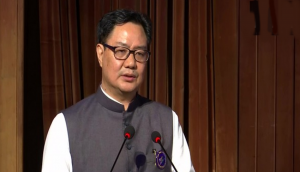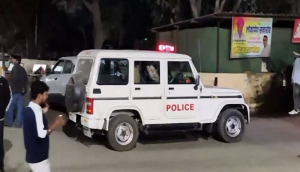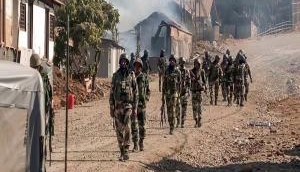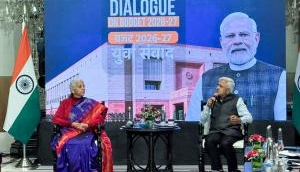
Because of Indian defence forces' firm and strong response, the Chinese Army is facing the "unanticipated consequences" of its misadventure in Ladakh, Chief of Defence Staff Gen Bipin Rawat said on Friday even as he stressed that status quo will have to be restored as India won't accept any shifting of the Line of Actual Control.
The strong remarks on the situation on the China border were made by the CDS on a day when the two countries are holding their eighth round of Corps Commander-level talks to address the ongoing military stand-off which has been going on for the last over six months after transgressions by the PLA at multiple locations.
"The situation along the LAC in Eastern Ladakh remains tense. The People's Liberation Army is facing unanticipated consequences of its misadventure in Ladakh because of Indian defence force's firm and strong response. Our posturing is unambiguous-- status quo has to be restored and we will not accept any shifting of the Line of Actual Control," he said while addressing a webinar on 60 years of National Defence College.
He said that in the overall security calculus, a full-scale conflict with China is low on probability and that in the future the China-India relationship will be a competitive one.
"In the overall security calculus, a full-scale conflict with China is low on probability. However, border confrontations transgressions and unprovoked tactical military actions spiralling into larger conflict cannot be discounted," he said.
"An unbalanced economic relationship is likely to ensure that in near future the China-India relationship will remain a fundamentally competitive one," the CDS added.
While addressing the webinar, the CDS stated that there is a potential for escalation of threat perception for India as there is "constant friction with our two nuclear-armed neighbours with whom India has fought wars and are increasingly acting in collusion. They pose an omnipresent danger of regional instability."
General Rawat also spoke at length on Pakistan as he stated that India's western neighbour "Pakistan continues to remain the epicentre of armed Islamic insurgency and terrorism and is engaged in propagating false communal narrative to disrupt peace in India."
"Pakistan has continued to remain the epicentre of armed Islamic insurgency and terrorism. For three decades now, the Pakistan army and its intelligence agency ISI have been waging a proxy war in Jammu and Kashmir. It is now increasingly resorting to non-kinetic means by launching vicious anti-India rhetoric on social media and propagating false communal narrative to create social disharmony within India," he added.
General Rawat stated that Pakistan's current economic crisis, its inability to come out of the FATF grey list, rising religious and ethnic fundamentalism, and internal power struggles will push it further into instability in the foreseeable future.
The surgical strikes post the Uri terror attack and the Balakot airstrikes have delivered a strong message to Pakistan that it no longer enjoys the impunity of pushing terrorists across the line of control under the nuclear bogey, he said.
"The new Indian template has injected ambiguity and uncertainty in Pakistan evident in its media reports about the Indian armed forces' reaction. If Pakistan sponsored terrorist crosses the threshold of tolerance despite its internal instability, failing economy, international isolation and vitiated civil military relations, Pakistan will continue to profess that Kashmir is an unfinished agenda and its army will continue to raise the bogey of an existential threat from India to justify its disproportionately large strength and need for funds to maintain its fighting capabilities," he added.
He also stressed the need to develop indigenous capability in terms of the country's military requirements for strategic independence.
"As India grows in stature, security challenges will rise proportionately. We must move out of the constant threat of sanctions or dependency on individual nations for our military requirements and invest in building long-term indigenous capability for strategic independence and application of decisive military power to squarely meet present and emerging challenges," CDS Rawat said.
(ANI)
Also Read: CDS Gen Bipin Rawat: New proposals aimed at welfare of frontline combat soldiers


_in_Assams_Dibrugarh_(Photo_257977_300x172.jpg)




![BJP's Kapil Mishra recreates Shankar Mahadevan’s ‘Breathless’ song to highlight Delhi pollution [WATCH] BJP's Kapil Mishra recreates Shankar Mahadevan’s ‘Breathless’ song to highlight Delhi pollution [WATCH]](https://images.catchnews.com/upload/2022/11/03/kapil-mishra_240884_300x172.png)

![Anupam Kher shares pictures of his toned body on 67th birthday [MUST SEE] Anupam Kher shares pictures of his toned body on 67th birthday [MUST SEE]](https://images.catchnews.com/upload/2022/03/07/Anupam_kher_231145_300x172.jpg)


_in_Assams_Dibrugarh_(Photo_257977_1600x1200.jpg)



